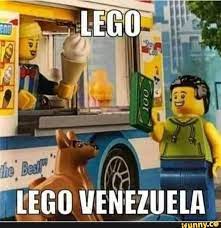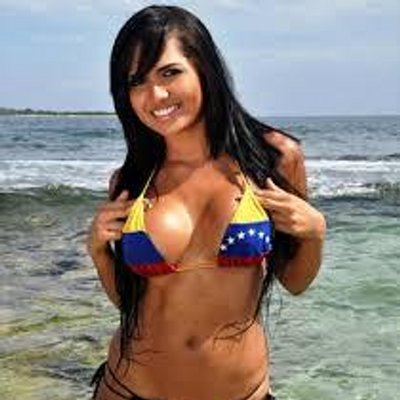- Joined
- Jan 17, 2010
- Messages
- 4,522
- Reaction score
- 5,483
BY REGINA GARCIA CANO
Updated 1:40 AM BRT, October 14, 2023
SAN JOAQUIN, Venezuela (AP) — The avocado trees across the road from Jose Hernandez’s tin-roofed home help feed several retirees in the rural community of San Joaquin along a highway two hours southwest of Venezuela’s capital.

He and his neighbors cut the avocados with the owner’s permission and sell them to motorists at a nearby toll booth or on the streets of the nearby city of Valencia, which has not emptied out as much as San Joaquin from migration over the last decade.
They live day by day. Their pension these days amounts to $3.70 a month, only 20 cents more than the cost of a gallon of bottled water. So no sales mean no food.
“Sometimes, we even have to barter avocados for food in other neighborhoods. We want jobs!” Hernandez, 67, exclaimed while sitting on his dusty, cement-floor porch with a neighbor. “He was a carrier, I sold merchandise downtown. Right now, there is no work. All the young people have already left. This neighborhood is desolate!”

https://www.thesun.co.uk/news/4524930/sexy-venezuelan-weathergirl-raises-temperatures-by-reading-a-forecast-wearing-a-bikini/
The political, social and economic crisis that has come to define their South American homeland has evolved since it began a decade ago as a result of a global drop in the price of oil, Venezuela’s most valuable resource, mismanagement by the self-proclaimed socialist administration and government repression of its opponents.
The latest phase has been particularly challenging after the economic stability that many experienced for several months overlapping 2021 and 2022 vanished. They again are grappling with constant food-price hikes, business closures and painful thoughts of migrating.
Amid this daily reality, Venezuelans are hearing election chatter as the opposition gets ready to hold a primary Oct. 22 to pick a candidate to challenge President Nicolás Maduro in a presidential election next year.
But apathy and disgust toward politics and politicians — be they Maduro, his allies or his adversaries — have deepened among the young and old amid the litany of disappointments, corruption accusations, rampant misinformation and government repression.

Maduro’s government managed to get Venezuela out of a hyperinflationary cycle at the end of 2021 with public spending cuts, tax increases and foreign currency injections. For a time last year, workers could pull out of their pockets a dollar or two and maybe even some worthless bolivares, the local currency. Practically everyone knew someone running a business from their home, such as selling sugar-free snacks via Instagram or offering group lessons on basic math.
The respite — coming after Venezuela’s economy contracted 80% from 2014 into 2021 — even prompted some Venezuelans to return from Colombia, Peru, Ecuador and other Latin American countries that had hosted them for years but where they could not find work in a post-pandemic economy. It also slowed down the exodus from Venezuela.

But by January, the stability was gone. May 1 came and went without the president’s traditional Labor Day announcement of a minimum wage increase. The last raise, in April 2022, put monthly pay at 130 bolivares, which at the time was worth $30, but has now dwindled to $3.70.
These days, a kilo (2.2 pounds) of chicken costs about $2.40, a dozen eggs is $2.25, and a liter (a little over a quart) of milk goes for $2.
“Things got very difficult. Even getting sick is difficult because if you buy food, you can’t buy medicine,” Mayela Ramirez, 59, said standing by her front door in downtown Valencia, once home to multiple auto assembly plants. “I have a nephew who has a problem with his brain — he has like a ball growing there — and needs a biopsy, but he can’t (afford it) because it is $150, so we are doing raffles to raise money.”

Ramirez helps her husband run his auto repair shop, but it is no longer uncommon for a week to go by without a single car being dropped off. It has been a long time since she shopped freely at the grocery store, where she now buys more vegetables than ever because protein sources are too expensive.
She has noticed people have begun leaving the country again, including four of her neighbors who migrated at the end of September.
More than 7.7 million Venezuelans have fled their country, mostly to Latin American and Caribbean countries. But these days, people are migrating with their eyes set on the U.S. and not Colombia or Peru, which have received the largest number of Venezuelans since the crisis began.

Over the last year, the number of Venezuelan migrants trying to enter the U.S. through its southern border has increased exponentially. U.S. border patrol agents in the last 11 months had more than 199,500 encounters with Venezuelans at the U.S.-Mexico border, compared with 2,700 in all 2020. In August alone, the encounters were more than 31,400.
Venezuelans have come to feel the crisis as one numbingly featureless expanse of struggles, though they use some of its bigger calamities to parse out one year from another: 2017 had mass anti-Maduro protests and repression; 2018 saw severe food shortages; 2019 brought nationwide power outages; 2020 had days-long gas station lines.
Worries are growing as people see many of these woes striking all at once, even in the capital, Caracas, whose residents had been partially insulated from some of the crisis’ challenges.
The variety of products at supermarket shelves and neighborhood markets is getting smaller. Imported-goods stores put goods on the front edge of shelves to give the appearance of being fully stocked. Restaurants are closing. Refilling a gas tank with subsidized fuel again involves careful planning. Hours-long power outages are more frequent in Caracas.
Many long for the days of “el Comandante” — the late President Hugo Chávez and his self-described socialist revolution of the 2000s. But regardless of political affiliation, Venezuelans are increasingly feeling like pawns in a geopolitical game that ignores their empty wallets.
A 12-hour stretch one recent day illustrated that growing sentiment.

Around 9:30 a.m., the highway that goes by San Joaquin was blocked by soldiers purportedly for unsafe conditions due to downed electrical wires, but they moved aside roughly two hours later after local leaders verified that Maria Corina Machado, the frontrunner in the opposition’s presidential primary, had left the area.
By 4:30 p.m., the U.S. government, whose economic sanctions failed to topple Maduro, flipped-flopped on its definition of safety for Venezuelans when it announced the resumption of deportation flights to the South American country. The announcement came just two weeks after it had expanded protections for about 500,000 Venezuelan migrants citing “increased instability and lack of safety” in the country.
Around 6 p.m., news of the flights spread on social media and thousands of people rallied with Machado in Valencia. An hour later, the attorney general announced on national television a new criminal investigation against Juan Guaidó, an exiled opposition leader who ran a parallel government to Maduro’s with the help of the U.S.
“The government needs to be removed, but right now, right now, what is affecting us Venezuelans is the economy,” said Vanessa Martinez, 31, who does maintenance at a rest stop for about $60 a month and was unaware of the opposition’s primary.
“Here, one lives day to day,” she said. “The situation is very sad. Who knows when we’ll see a change.”
https://apnews.com/article/venezuel...od-elections-afabb9dee444128c5ec4593a51e78896
Updated 1:40 AM BRT, October 14, 2023
SAN JOAQUIN, Venezuela (AP) — The avocado trees across the road from Jose Hernandez’s tin-roofed home help feed several retirees in the rural community of San Joaquin along a highway two hours southwest of Venezuela’s capital.
He and his neighbors cut the avocados with the owner’s permission and sell them to motorists at a nearby toll booth or on the streets of the nearby city of Valencia, which has not emptied out as much as San Joaquin from migration over the last decade.
They live day by day. Their pension these days amounts to $3.70 a month, only 20 cents more than the cost of a gallon of bottled water. So no sales mean no food.
“Sometimes, we even have to barter avocados for food in other neighborhoods. We want jobs!” Hernandez, 67, exclaimed while sitting on his dusty, cement-floor porch with a neighbor. “He was a carrier, I sold merchandise downtown. Right now, there is no work. All the young people have already left. This neighborhood is desolate!”

https://www.thesun.co.uk/news/4524930/sexy-venezuelan-weathergirl-raises-temperatures-by-reading-a-forecast-wearing-a-bikini/
The political, social and economic crisis that has come to define their South American homeland has evolved since it began a decade ago as a result of a global drop in the price of oil, Venezuela’s most valuable resource, mismanagement by the self-proclaimed socialist administration and government repression of its opponents.
The latest phase has been particularly challenging after the economic stability that many experienced for several months overlapping 2021 and 2022 vanished. They again are grappling with constant food-price hikes, business closures and painful thoughts of migrating.
Amid this daily reality, Venezuelans are hearing election chatter as the opposition gets ready to hold a primary Oct. 22 to pick a candidate to challenge President Nicolás Maduro in a presidential election next year.
But apathy and disgust toward politics and politicians — be they Maduro, his allies or his adversaries — have deepened among the young and old amid the litany of disappointments, corruption accusations, rampant misinformation and government repression.

Maduro’s government managed to get Venezuela out of a hyperinflationary cycle at the end of 2021 with public spending cuts, tax increases and foreign currency injections. For a time last year, workers could pull out of their pockets a dollar or two and maybe even some worthless bolivares, the local currency. Practically everyone knew someone running a business from their home, such as selling sugar-free snacks via Instagram or offering group lessons on basic math.
The respite — coming after Venezuela’s economy contracted 80% from 2014 into 2021 — even prompted some Venezuelans to return from Colombia, Peru, Ecuador and other Latin American countries that had hosted them for years but where they could not find work in a post-pandemic economy. It also slowed down the exodus from Venezuela.
But by January, the stability was gone. May 1 came and went without the president’s traditional Labor Day announcement of a minimum wage increase. The last raise, in April 2022, put monthly pay at 130 bolivares, which at the time was worth $30, but has now dwindled to $3.70.
These days, a kilo (2.2 pounds) of chicken costs about $2.40, a dozen eggs is $2.25, and a liter (a little over a quart) of milk goes for $2.
“Things got very difficult. Even getting sick is difficult because if you buy food, you can’t buy medicine,” Mayela Ramirez, 59, said standing by her front door in downtown Valencia, once home to multiple auto assembly plants. “I have a nephew who has a problem with his brain — he has like a ball growing there — and needs a biopsy, but he can’t (afford it) because it is $150, so we are doing raffles to raise money.”

Ramirez helps her husband run his auto repair shop, but it is no longer uncommon for a week to go by without a single car being dropped off. It has been a long time since she shopped freely at the grocery store, where she now buys more vegetables than ever because protein sources are too expensive.
She has noticed people have begun leaving the country again, including four of her neighbors who migrated at the end of September.
More than 7.7 million Venezuelans have fled their country, mostly to Latin American and Caribbean countries. But these days, people are migrating with their eyes set on the U.S. and not Colombia or Peru, which have received the largest number of Venezuelans since the crisis began.

Over the last year, the number of Venezuelan migrants trying to enter the U.S. through its southern border has increased exponentially. U.S. border patrol agents in the last 11 months had more than 199,500 encounters with Venezuelans at the U.S.-Mexico border, compared with 2,700 in all 2020. In August alone, the encounters were more than 31,400.
Venezuelans have come to feel the crisis as one numbingly featureless expanse of struggles, though they use some of its bigger calamities to parse out one year from another: 2017 had mass anti-Maduro protests and repression; 2018 saw severe food shortages; 2019 brought nationwide power outages; 2020 had days-long gas station lines.
Worries are growing as people see many of these woes striking all at once, even in the capital, Caracas, whose residents had been partially insulated from some of the crisis’ challenges.
The variety of products at supermarket shelves and neighborhood markets is getting smaller. Imported-goods stores put goods on the front edge of shelves to give the appearance of being fully stocked. Restaurants are closing. Refilling a gas tank with subsidized fuel again involves careful planning. Hours-long power outages are more frequent in Caracas.
Many long for the days of “el Comandante” — the late President Hugo Chávez and his self-described socialist revolution of the 2000s. But regardless of political affiliation, Venezuelans are increasingly feeling like pawns in a geopolitical game that ignores their empty wallets.
A 12-hour stretch one recent day illustrated that growing sentiment.

Around 9:30 a.m., the highway that goes by San Joaquin was blocked by soldiers purportedly for unsafe conditions due to downed electrical wires, but they moved aside roughly two hours later after local leaders verified that Maria Corina Machado, the frontrunner in the opposition’s presidential primary, had left the area.
By 4:30 p.m., the U.S. government, whose economic sanctions failed to topple Maduro, flipped-flopped on its definition of safety for Venezuelans when it announced the resumption of deportation flights to the South American country. The announcement came just two weeks after it had expanded protections for about 500,000 Venezuelan migrants citing “increased instability and lack of safety” in the country.
Around 6 p.m., news of the flights spread on social media and thousands of people rallied with Machado in Valencia. An hour later, the attorney general announced on national television a new criminal investigation against Juan Guaidó, an exiled opposition leader who ran a parallel government to Maduro’s with the help of the U.S.
“The government needs to be removed, but right now, right now, what is affecting us Venezuelans is the economy,” said Vanessa Martinez, 31, who does maintenance at a rest stop for about $60 a month and was unaware of the opposition’s primary.
“Here, one lives day to day,” she said. “The situation is very sad. Who knows when we’ll see a change.”
https://apnews.com/article/venezuel...od-elections-afabb9dee444128c5ec4593a51e78896


